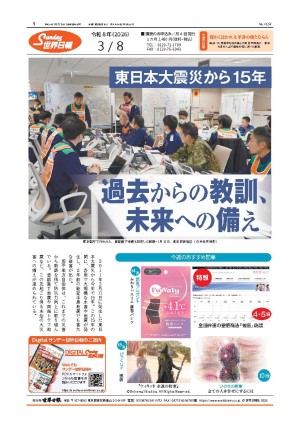イスラム国は依然として脅威、クルド外交官が警告 ISIS remains threat despite losses, Iraqi Kurds warn
過激派組織「イスラム国」(IS)は、イラクとシリアで築いていた広大な「カリフ制国家」すべてを失ったにもかかわらず、依然としてテロ組織としての能力を持ち、この地域に大惨事を引き起こす能力を持っている。イラクのクルド自治政府の外交トップが20日、明らかにした。
サフィーン・ディザイ氏は、ワシントンのシンクタンク「近東研究所」で講演し、ISは3月にシリアの最後の支配地を失ったが、すでに再組織化されていると警告した。米国の支援を受けたクルド人主体の「シリア民主軍(SDF)」がISを攻撃、空爆、砲撃を行い、特殊部隊も投入された。
...【全文を読む】







